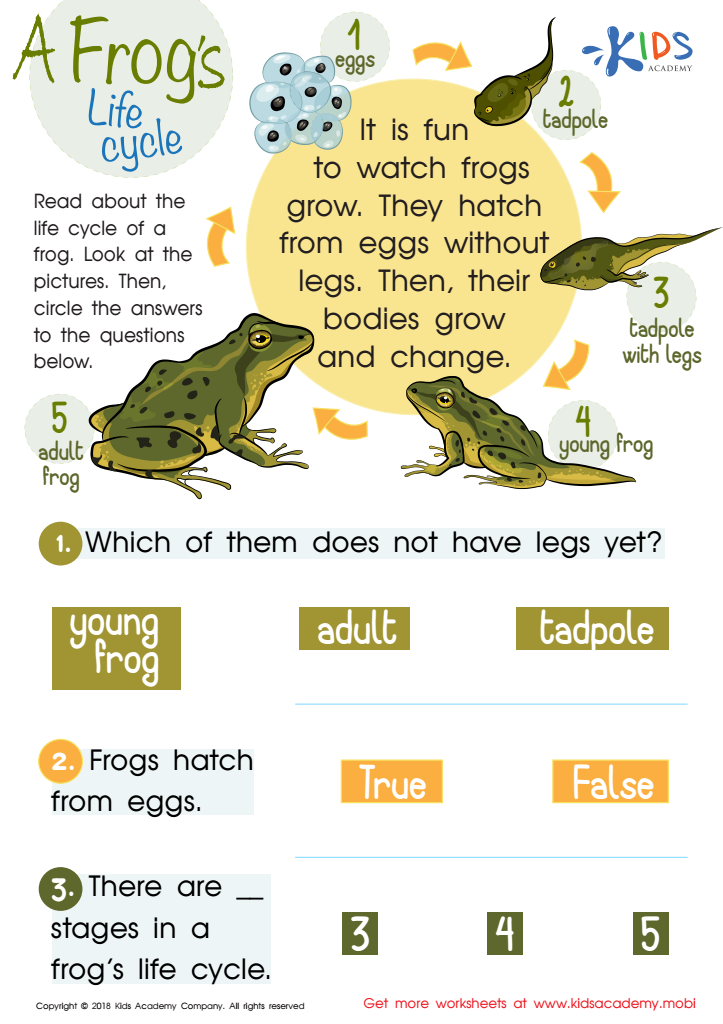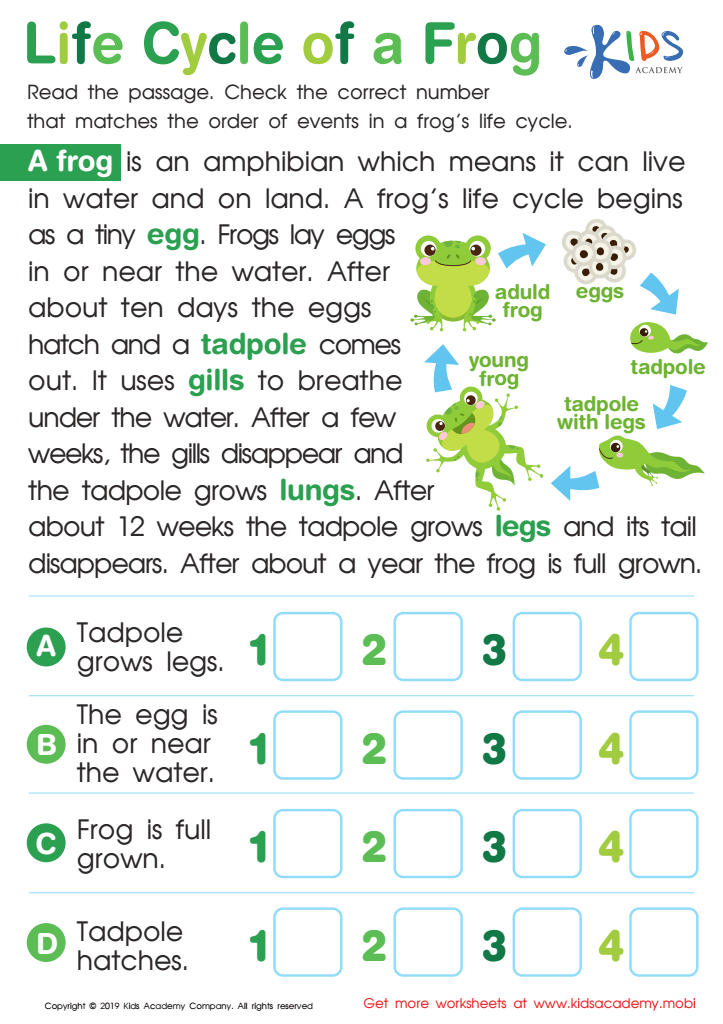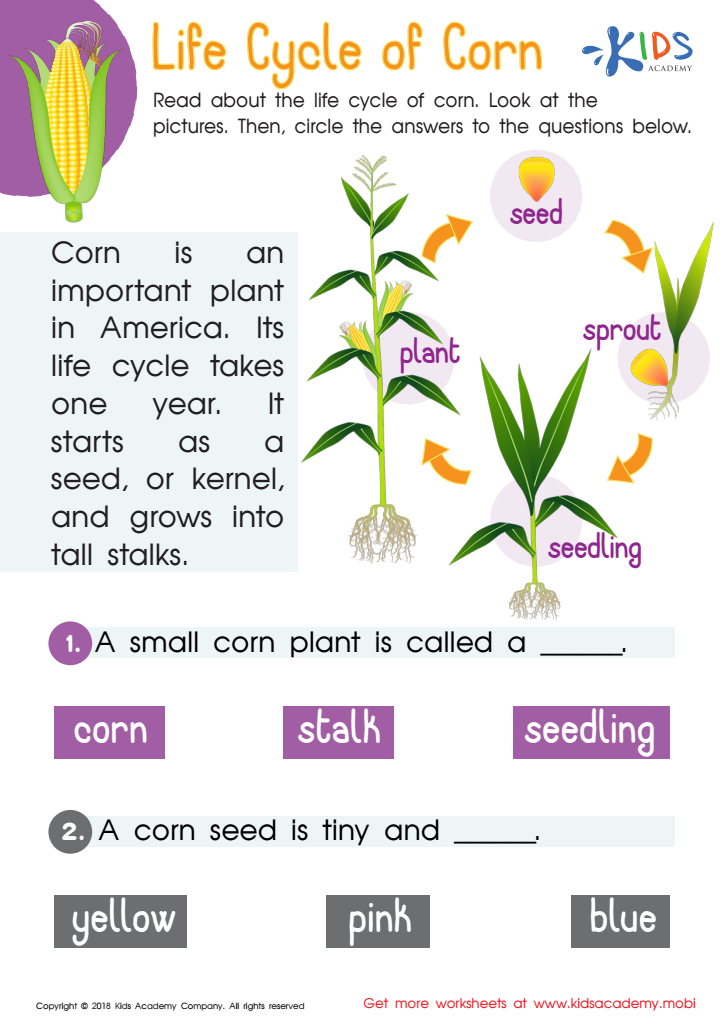Understanding life cycles Easy Reading Non-Fiction Worksheets for Ages 5-7
3 filtered results
-
From - To
Discover "Understanding Life Cycles Easy Reading Non-Fiction Worksheets for Ages 5-7," an engaging resource from Kids Academy. Designed to help young learners explore the fascinating stages of living organisms, these worksheets offer fun, interactive activities that build reading and comprehension skills. Your child will enjoy vibrant illustrations and straightforward explanations about plants, animals, and insects. Perfect for early readers, these worksheets foster curiosity and educational growth. Ideal for both classroom and at-home learning, this collection makes life cycles understandable and enjoyable for children aged 5-7. Ignite a passion for science with our easy reading non-fiction materials!


A Frog’s Life Cycle Worksheet


Life Cycle of a Frog Worksheet


Life Cycle of Corn Worksheet
Understanding life cycles through easy reading non-fiction for ages 5-7 is a fundamental building block in early education that brings multiple benefits. First, it fosters curiosity and a love for learning. When children read about how plants grow, animals metamorphose, and seasons change, their natural interest in the world around them is sparked. This intrigue lays the foundation for further education in science and the natural world.
Second, learning about life cycles helps children grasp essential concepts like growth, change, and interdependence. These ideas go beyond the animal or plant in focus. For instance, they start to understand that all living things share similar stages of development, which builds empathy and a more extensive knowledge base.
Third, age-appropriate non-fiction books improve literacy skills, using engaging text alongside pictures to promote reading comprehension. Good books in this genre have simple sentences, relatable vocabulary, and helpful illustrations, meeting young children at their level of understanding.
Finally, parents and teachers who emphasize life cycles are promoting critical thinking. Kids ask questions like, “What happens next?” or “Why does this occur?” These questions lead to discussions, encouraging inquisitive minds and better communication skills.
By integrating these valuable elements, parents and teachers can make learning about life cycles an enjoyable and enriching part of early childhood education.
 Assign to My Students
Assign to My Students














